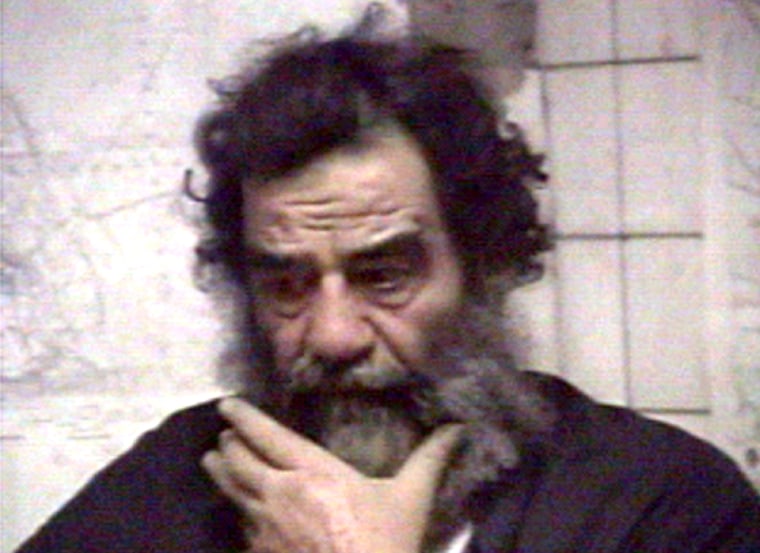Iraqi leaders have set up a tribunal of judges and prosecutors to try former President Saddam Hussein and other members of his Baathist regime, a spokesman announced Tuesday.
Salem Chalabi, a U.S.-educated lawyer and nephew of Ahmad Chalabi, the head of the Iraqi National Congress, was named as general director of the tribunal. He named a panel of seven judges and four prosecutors, said the spokesman, Entefadh Qanbar.
The tribunal, which has a 2004-05 budget of $75 million, also will prosecute any members of Saddam’s regime who are charged, Qanbar said.
No date has yet been set for the trial of Saddam, whom U.S. troops captured in December. He was believed to be held in or near Baghdad, although British reports last month claimed that he had been airlifted to Qatar.
The court and prosecutors will determine charges against Saddam and his former officials, Qanbar said, adding that more judges would be hired.
He said the tribunal would be an Iraqi court, not an international body, and would rely on a mix of Iraqi criminal law; international regulations, such as the Geneva Conventions; and experiences of bodies such as the Rwanda war crimes tribunal. The judges and prosecutors will undergo training in those areas, he added.
A committee of Iraq’s Governing Council selected Chalabi as head of the court under a law passed earlier by the council and approved by the top U.S. administrator, L. Paul Bremer. The Iraqi National Congress has a seat on the committee.
The choice could prove controversial. Chalabi, a longtime exile, is mistrusted as an outsider by many Iraqis, who are eager to see Saddam prosecuted by his own people. Some observers said changes could be made in the high-profile tribunal after the creation of a new government on June 30.
U.S. officials believe at least 300,000 bodies were buried in mass graves, victims of the former regime’s persecution of political enemies, Kurds and Shiite Muslims, and other groups. Some human rights activists believe the number closer to 1 million.
Delegation studies big cases
The lawyers and judges who created the tribunal visited international courts in the Netherlands last month to study the complex procedure of trying high-profile suspects like Saddam. Chalabi said at the time that war crimes trials were not likely to start until early next year and that Saddam’s would not be the first case.
The Iraqis met with experts from the International Criminal Court, based in The Hague, and the war crimes tribunals for Rwanda, Sierra Leone, East Timor and the former Yugoslavia, Laurel Miller of the Washington-based Institute of Peace, a non-governmental organization that arranged the visit, told reporters earlier this month.
Miller said the work of trying war crimes and other atrocities was formidable because of the huge amount of information presented.
“In a war crimes case, there are lots of witnesses, lots of victims, and the volume of documentary evidence is much greater than in an ordinary criminal case,” she said.
In preparation, the Bush administration has said it would send a special “regime crimes” adviser and launch investigations in the coming months.
The administration told Congress earlier this month that it had already set up an evidence storage facility at a former Iraqi army base and sent five deputy U.S. marshals to Baghdad last month as a first wave of investigative advisers, the report said.
Over the next three months, the administration plans to develop a computerized system to track and archive documents and begin training sessions for Iraqi judges and investigators.
Saddam would be defended at trial by Jacques Vergès, 79, a prominent French lawyer known for his defense of Nazi war criminal Klaus Barbie and Ilitch Ramirez Sanchez, the Venezuelan terrorist better known as Carlos the Jackal. Vergès has said he does not fully expect Saddam to reach a courtroom, however, predicting that “the United States will poison my client before the trial begins.”
If there is a trial, Vergès told Agence France-Presse, he plans to call Defense Secretary Donald Rumsfeld to testify, in addition to former Secretary of State Henry Kissinger, in order to reveal Washington’s past links with Iraq.
Vergès is also representing Saddam’s deputy prime minister, Tariq Aziz, who surrendered to U.S. forces in April 2003.
